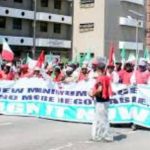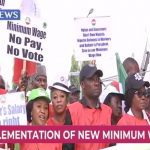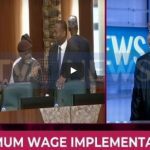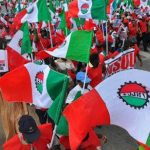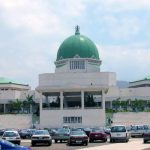Workers In Nigeria have expressed optimism as organised labour prepares to begin minimum wage negotiations with the federal government.
Workers are requesting a considerable raise in the national minimum pay from N30,000, claiming that rising inflation, which reached 28.9% in December, and the elimination of the petrol subsidy in May 2023 have rendered the present minimum salary meaningless.
The Director-General of Nigeria Employers’ Consultative Association, Adewale Oyerinde, noted the substantial impact of inflation in the country had significantly diminished the disposable income of an average Nigerian worker.
Vice President Kashim Shettima inaugurated the 37-member tripartite committee on the national minimum wage at the Council Chamber of the State House in Abuja on Tuesday.
Shettima urged the committee, whose membership cuts across federal, and state governments, the private sector, and organised labour, to “speedily” arrive at a resolution and submit their reports early as the current N30,000 minimum wage would expire at the end of March 2024.
Civil servants are happy as they say the prices of goods and services have soared considerably.
In a statement released on Sunday, the Director of Information at the Office of the Secretary to the Government of the Federation, Segun Imohiosen, revealed that a committee comprising 37 members would be headed by the former Head of the Civil Service of the Federation, Bukar Aji..
The government last year approved a monthly wage of N35,000 for its workers until the implementation of the anticipated new minimum wage.
However, NLC and TUC had demanded that President Bola Tinubu fulfil his promise to pay a wage award of N35,000 to low cadre workers for the next six months to cushion the effect of the removal of the subsidy.
Employees in the Federal Civil Service disclosed that the government only paid the N35,000 wage for September.




